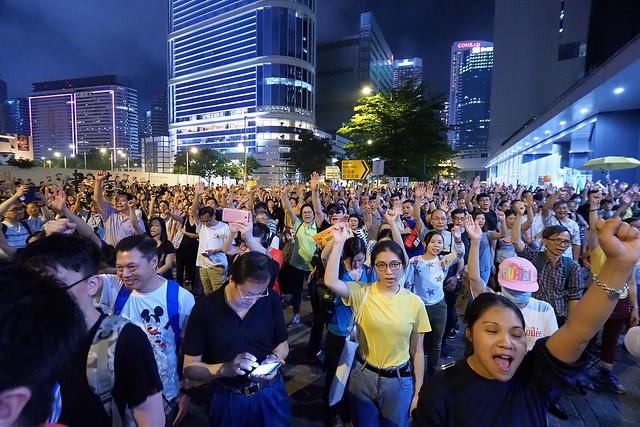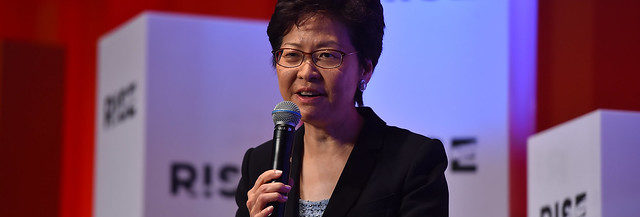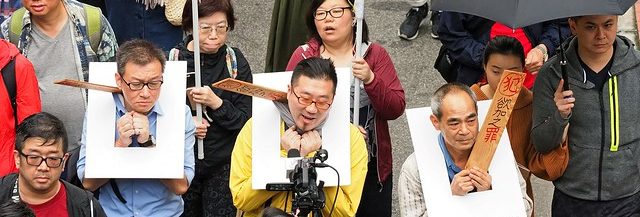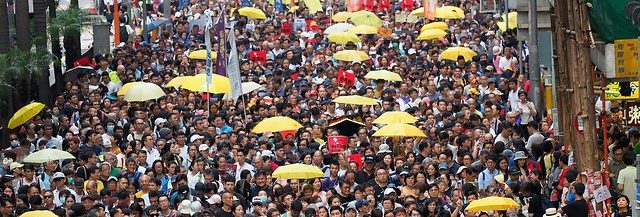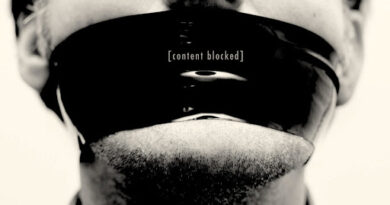Hong Kong Protests: A New Tienanmen?
Despite the decision of the Hong Kong Government to suspend the controversial extradition bill to China, yet nearly two million of people have taken to the streets to march against it.
If there is a word that could be used to define the effort of those activists protesting in Hong Kong against this extradition bill, well this should be 抗命 (Kàngmìng), disobedience.
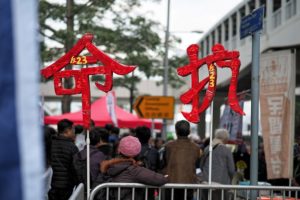
Kàngmìng, Disobedience. Credits to Etan Liam.
To some extents, Hong Kong protests echoed the 2014 Occupy Movement, where protesters calling for greater democratic rights seized the city for two months and battled police, but won no concessions from Beijing.
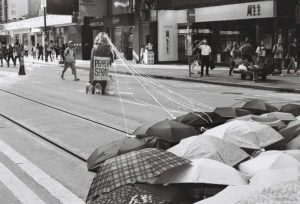
2014 Hong Kong Protest. Credits to Beryl_snw.
On June 15, Hong Kong announced the sine die suspension of the debate on the controversial extradition bill.
Hong Kong Governor Carrie Lam motivated the suspension “in light of what happened and, as a responsible government,” in reference to past Sunday’s and Wednesday’s clashes between police and demonstrators.
We may not have been effective enough in our communication, but the priority now is to rebuild peace and order and trust in the government.
Our intentions were sincere and they were to fill some gaps in the regulations, claimed Lam in a statement of over ten minutes.
But the attempt by Carrie Lam to defuse the protests was therefore unsuccessful.
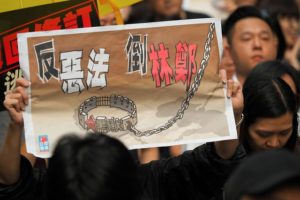
Against ferocious (extradition) law, Step down Carrie Lam. Credits to Etan Liam.
Many accuse her of not apologizing for the police violence, which led to the injury of 81 people during the protests, and for the arrest of 11 protesters.
Demonstrators also suspect that the suspension is only a tactic to weaken the opposition, and that Lam’s intention is to retable the amendment in the autumn.
Protests began in Victoria Square, the most important square in the city of Hong Kong: many demonstrators were dressed in black, holding signs accusing China of killing Hong Kong residents.
Some other had white flowerpot to mourn the loss of a demonstrator who died on Saturday in an attempt to hang a protest banner on a mountain.
Among the most influent and famous activists, Joshua Wong Chi-fung, one of the leaders of the Umbrella Revolution, is again back on track after being released from prison on June 17.
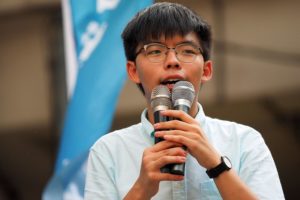
Joshua Wong. Credits to Etan Liam.
He immediately sided with the protesters against the extradition bill, demanding the resignation of the leader, Carrie Lam.
Wong, 22, who left the Lai Chi Kok Correctional Institute, was one of the leaders of the pro-democracy protests in 2014 that paralyzed the center of the Special Administrative Region for 79 consecutive days.
“Carrie Lam is no longer qualified to be the leader of Hong Kong,” he told the journalists who were waiting for him at the exit of the Correctional Institute, blaming the Chief Executive for the violence suffered by the demonstrators in the clashes with the police on June 12.
Five years ago, Wong was in the front row, when at 17, calling for universal suffrage for the election of the Chief Executive of the Chinese Special Administrative Region. He was arrested on the first day of Occupy Central demonstrations – later known as the ‘Umbrella Movement‘ – when the police used tear gas and pepper spray against the crowd that had poured into the heart of the island, occupying Tamar and Admiralty, where the Legislative Assembly building, the local parliament, and government buildings are located.
He remained in detention for 48 hours: his parents spoke of “political persecution” after he was initially denied his release on bail.
At the head of “Scholarism”, Wong became the best-known face of the movement opposing Beijing’s proposed reform of the Hong Kong leader’s election law.
The demonstrations that followed were the largest ever held on Chinese soil since the pro-democracy protests in Tiananmen Square in 1989.
Then why is the extradition bill to China so controversial to Hong Kong activists? Here some insights that may explain their major reasons.
What is the extradition bill about?
The bill would allow the extradition to China of “suspected” perpetrators of crimes for which more than seven years of punishment is expected. In fact, the amendment would allow the extradition to mainland China, to Taiwan and Macao, of people accused of having committed serious crimes such as murder and rape.
Whoever believes the measure is necessary?
The Hong Kong government led by Carrie Lam – accused of selling Hong Kong to China and, of course, to Beijing – strongly believes the measure is necessary, justifying the case of the boy who committed a murder in Taiwan and then took refuge in Hong Kong. In this case, the bill would justify extradition to China, Taiwan and Macau.
Who’s against it?
According to the opponents, the bill would expose Hong Kong to the problematic and illiberal Chinese judicial system, which often uses specious accusations to threaten dissidents. This would result in a reduction of the autonomy of the city-island that until 1997 was controlled by the United Kingdom, thus causing a progressive dependence from mainland China.
In fact, there is an increasingly clear political rapprochement at stake, after Hong Kong is already economically and financially ultra-connected to mainland China.
The real problem for demonstrators is that they are faced not only with the government and the city police, but with the second largest power in the world.
China supports Lam and condemns violence.
China confirms its support for the Hong Kong administration led by Carrie Lam, it condemns the violence of recent days and reiterates that the issue concerning the Chinese Special Administrative Region is an “internal issue” of China.
This was stated by Foreign Ministry spokesman Geng Shuang in a note circulated to Xinhua, after the press conference where Lam announced the suspension of work on amendments to the extradition bill.
Geng Shuang stressed that after Hong Kong’s transition from a British colony to China’s Special Administrative Region in 1997, the rights and freedoms enjoyed by residents are fully protected by law and maintaining Hong Kong’s prosperity and stability is in the interests of China and all countries in the world.
In the statement, the Chinese government expresses its support, respect and support for the choice of the Hong Kong administration to suspend work on the law, but at the same time, I would like to point out that Hong Kong is a Special Administrative Region of China and Hong Kong’s affairs are China’s internal affairs.
China and the United States.
Meanwhile, the controversial extradition bill is also becoming a new front of confrontation between China and the United States.
The Beijing Foreign Ministry has in fact announced that it has convened an American diplomat, Deputy Head of Mission Robert Forden, for a formal protest against American interference in its internal affairs.
More than Trump’s very general and uninformed words on the matter, the reaction of the Communist Party was triggered by a draft bipartisan law presented to Congress, which would oblige the Secretary of State to certify the autonomy of Hong Kong every year, to justify the special status granted to him.
It is not a good thing that the United States meddles in Hong Kong’s affairs, we are not afraid of threats or intimidation.
Ai Weiwei‘s opinion.
The most famous Chinese artist and dissident, Ai Weiwei, opined that Hong Kong protests will be a new Tiananmen.
Beijing wants to make it its own vassal and expand its influence in free and democratic territories…The death of Europe as we knew it and its rights, also because it is sold off to China, like Italy with the Silk Road. The thirties are back. And the Western intellectuals who proved to be a total failure.
__________________________________________________________________________________________________________________
Video: What Hong Kong’s Protests Look Like From Inside China. Credits to Quartz under CC BY 2.0.

